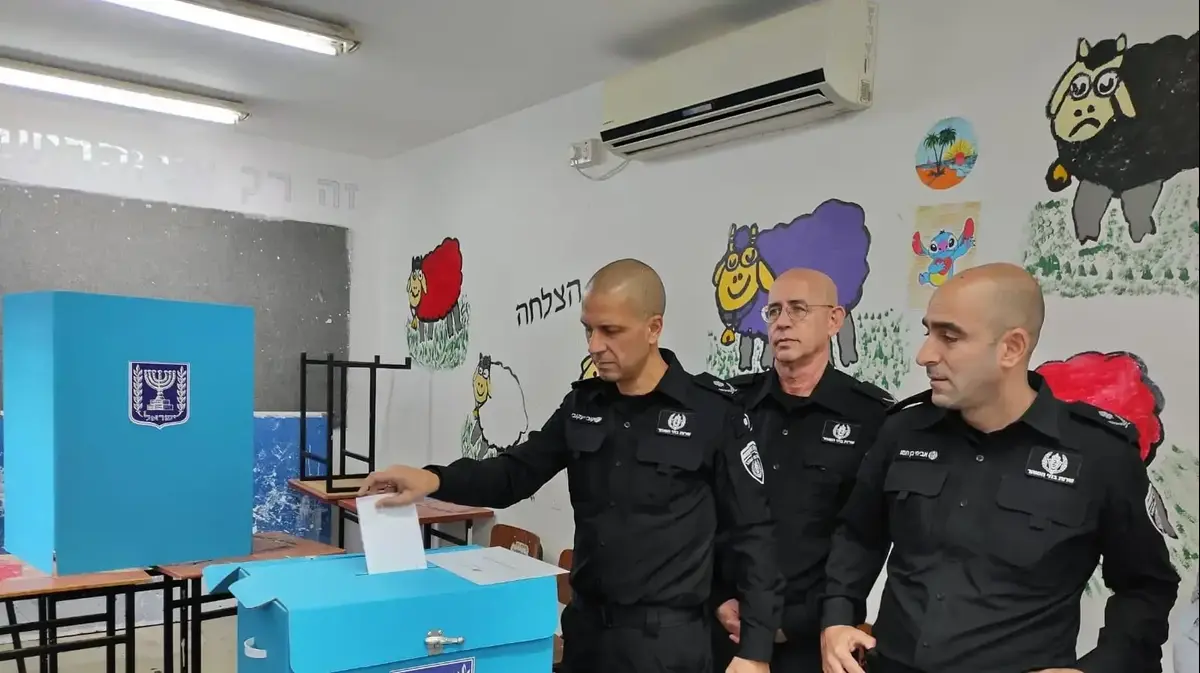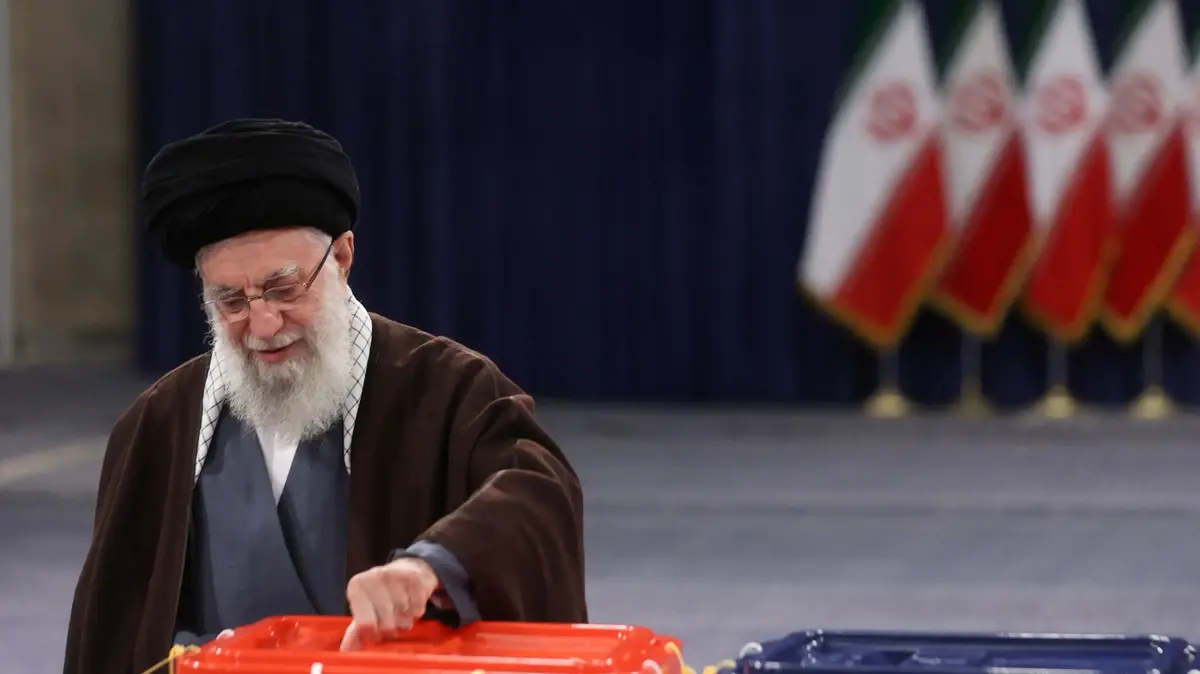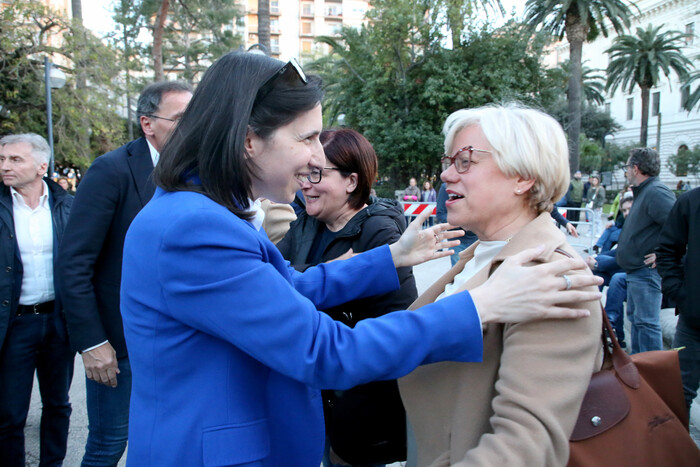Moema Gramacho protests against Michel Temer, in Brasilia, in May 2016.Eraldo Peres / AP
For a few years, the Superior Electoral Court of Brazil has asked candidates to declare what color their skin is.
It is not an uncommon question in this country, one of the most mixed race in the world.
When a foreigner takes out her health card, she must also detail whether she is black, mestizo, white, indigenous or yellow.
What is striking is that the answer may change over time, as the November municipal elections show.
More than 42,000 candidates who aspire to be re-elected as mayors or councilors declare a different race than in 2016. The changes go in both directions.
Some consider themselves more black;
others whiter.
These elections are momentous because for the first time in history, non-white candidates are in the majority.
In Brazil, racism is structural and politics is much whiter than citizenship.
To favor the presence of blacks and mestizos - that is, 56% of Brazilians - on the lists and in power, the electoral authorities have approved mandatory quotas that will be released in these November elections or in the 2022 presidential elections. This factor probably contributes to explain that 36% of those who were mestizos in the former municipalities now consider themselves black.
Another factor is the black pride that little by little is penetrating especially among the youngest as shown by the spectacular curly hair that many wear.
But evidently none of that explains the changes in the opposite direction: another 30% of the mestizo candidates in 2016 define themselves as white.
These data, revealed by the
Folha de S. Paulo
, emerge from the detailed X-ray of the half a million registered candidates that the electoral authorities released a few days ago.
Thanks to that database we know that Heitor Freire, candidate for mayor of Fortaleza and ally of President Jair Bolsonaro, has gone from mestizo to white;
or that Moema Gramacho, from Lula da Silva's Workers Party and aspiring to continue as mayor of a Bahia municipality, is no longer mestizo but black.
They are two examples among thousands because even within the same party some are now darker and others lighter.
Councilor Caio Miranda, from São Paulo, explained to G1 that he went from white to mestizo after a row from his parents.
"They accused me of denying my Northeast roots."
Other elected officials have taken refuge in the fact that in their day they were confused when filling out the form.
In any case, the color change is not the most striking thing about Brazilian politics.
President Bolsonaro, who in his long career has belonged to nine parties, has been without training since he slammed the door last year.
Even more peculiar is the procedure that regulates transfuguismo.
It is called a partisan window and it allows an elect to change his political acronyms for a certain period without losing his seat.
In Brazil, color, race, is a personal, complex matter that raises enormous suspicions and that year after year is gaining weight in politics, partly as a reflection of what is happening in the United States.
Each one chooses what race they are.
The State only intervenes in cases of flagrant fraud.
For example, when a university student with an indisputable white appearance tries to take advantage of the quotas reserved for mixed-race or black students, a matter that since its inception has been controversial like few others.
The case of footballer Neymar (who has just entered the list of defaulters in Spain) is paradigmatic of how the matter evolves.
As soon as he was successful, they asked him in an interview if he had suffered racism.
He said no, and added, "It's not like I'm black, you know."
Just a couple of weeks ago the Brazilian star denounced racist insults from an opponent in a match.
Brazil never had segregation laws in the style of those of the United States.
Miscegenation has been practically the norm for five centuries.
First, colonization, then slavery and already in the twentieth century the programs of recruiting immigrants from Europe, the Middle East or Japan to launder the population have made it one of the most racially diverse countries in the world.
Thanks to this, Brazilian passports are among the most highly valued on the international black market.
Any Spaniard, Cameroonian, German or North Korean looks like a Brazilian.
The dictator Kim Jong Un and his father traveled abroad in the 1990s with fake passports from the South American country, as revealed in the biography The Great Sucessor.

/cloudfront-eu-central-1.images.arcpublishing.com/prisa/AZCUDP4NSRCETMXPPA5NGPRBRY.jpg)



/cloudfront-eu-central-1.images.arcpublishing.com/prisa/MAVSIP6MF252ZKL4ZEZAPMSUPQ.jpg)


